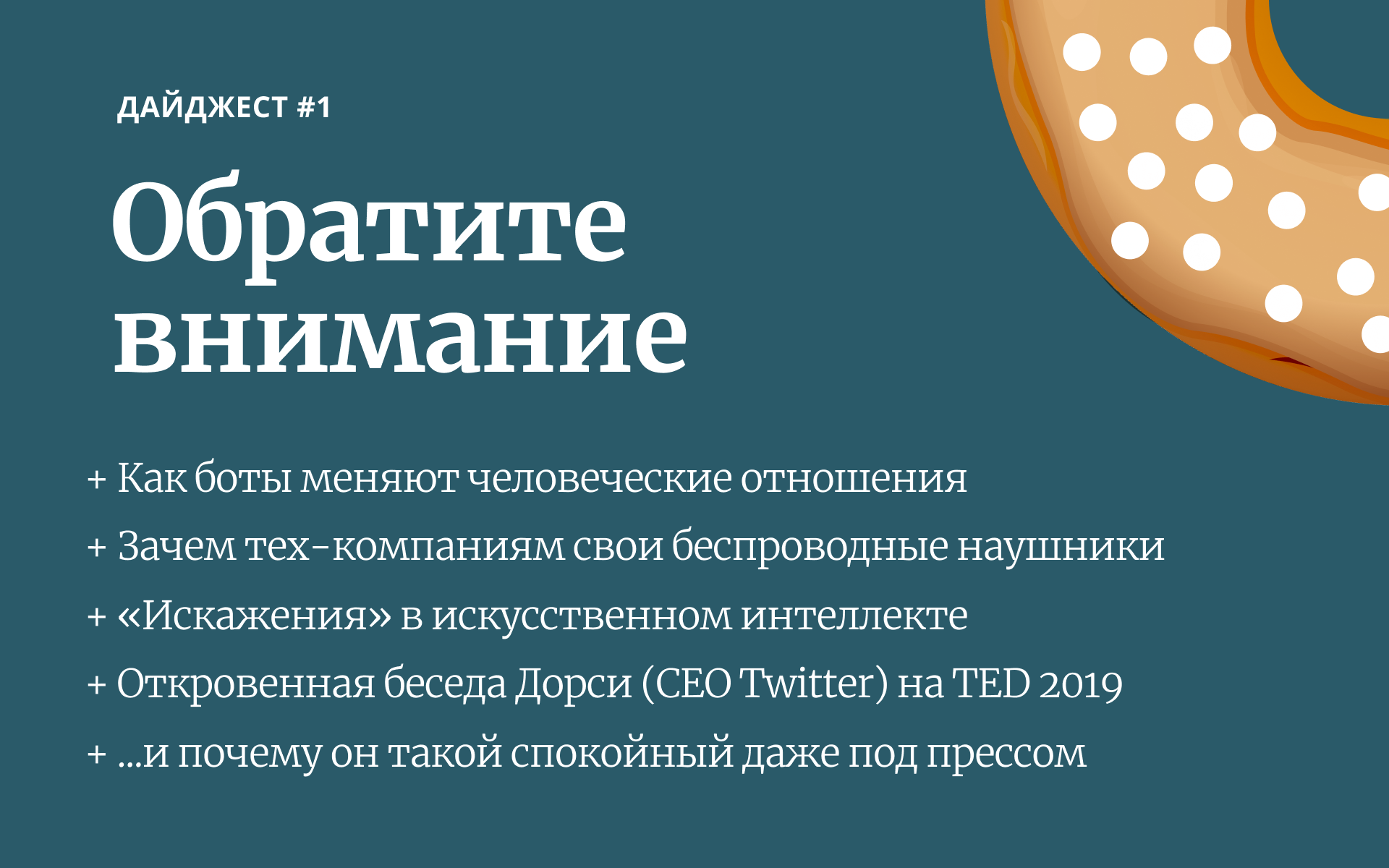Pay Attention # 1: Digest of Articles on AI, Product Thinking, Behavioral Psychology

This is the first in a series of weekly digests about technology, people and how they influence each other.
- An incredible article from a Harvard doctor and sociologist Nikolos Kristakis about how automation is changing our relationship. Attached are some amazing examples from his sociological laboratory at Yale University. From the article it becomes clear how robots can improve or destroy cooperation, trust and mutual assistance, depending on how they are built into social groups. Must read.
- Why did everyone suddenly get into making wireless headphones, Techpinions asks . The answer is obvious: job to be done - headphones allow you to conveniently create a focus on audio. Where attention is, there are technology businesses. Neither Apple, nor Microsoft, nor Amazon, nor anyone else will let a computer in your ear. In addition, the next battle for attention will be around the voice - which reproduces the meaning (podcasts, audio shows, articles, music) and which creates meaning (conversations).
- A frank conversation between Jack Dorsey (CEO of Twitter and Square) with the creator of TED about how Twitter is fighting and planning to overcome various unpleasant things that clog the channel: disinformation, spreading lies, Nazism, racism and more. In addition, a great look at how product thinking helps solve complex human relationships issues. Dorsey was the only technology leader to respond to an invitation to answer questions on the TED 2019 stage.
- If you notice how calm and grounded Dorsey feels on stage, then you are absolutely right. Dorsey has been meditating for 20 years, and on his last birthday he gave himself not a new Tesla, but a train to silent retreat to Myanmar . A further 10 Dorsey's healthy lifestyle habits, including diving in ice-cold water, an hour-long walk to the office in the morning, and fasting, are all available from CNBC .
- A powerful article by Andressen Horowitz partner Ben Evans on artificial intelligence biases. By analogy with the cognitive distortions common in humans, Ben claims that a number of distortions are inherent in artificial intelligence, primarily related to what kind of data people feed a computer to train neurons. Recommended for reading to anyone who directly or indirectly deals with AI.
